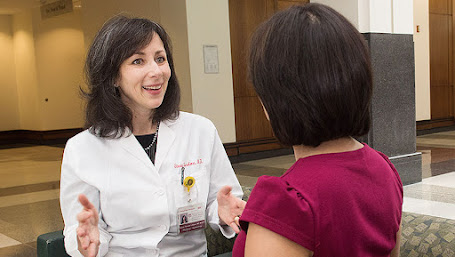What Is Female Sexual Interest/Arousal Disorder, And How Common Is It?
What is Female Sexual Arousal Disorder?
Female sexual arousal disorder (FSAD) is a condition that affects a woman's ability to become aroused or reach orgasm during sexual activity. It occurs when the body doesn't respond to sexual stimulation.
FSIAD is one of several conditions that fall under the umbrella of sexual dysfunction, which also includes
inability to orgasm
lack of sexual desire.
While having a sexual dysfunction can feel isolating, it's important to remember that you're not alone. It is surprisingly common, affecting up to one in three women.
What are the Symptoms of FSAD?
It's important to note that FSAD is not the same as HSDD (Hypoactive Sexual Desire Disorder). HSDD is defined as a lack of sexual thoughts and fantasies, while FSAD includes both decreased sexual fantasies as well as physical changes in response to sexual cues.
FSAD can have a negative impact on your quality of life and relationships. If you think you might be suffering from FSAD, here are five symptoms to look out for:
1. Decreased Sexual Interest
This first symptom is perhaps the most obvious one. It may indicate FSAD if you've seen a decline in your sex-related interest. This entails a drop in both actual sex-related desire and sexual thoughts and fantasies.
2. Few Thoughts Related to Sex
Similarly to the first symptom, this symptom involves your thoughts—or, more specifically, a lack thereof. If you find that you're no longer thinking about sex as often as you used to, it could be an early warning sign of FSAD.
3. Reduced Sexual Excitement or Pleasure During Sex
One of the telltale signs of FSAD is feeling less pleasure during sex than you used to. This could manifest itself in a number of ways, such as feeling less aroused during sex, taking longer to reach orgasm, or feeling like your orgasms are weaker than before.
4. Reduced Arousal from Internal or External Sexual Cues
This symptom refers to both mental and physical cues—in other words, anything that would typically turn you on no longer has the same effect. This could include things like erotic thoughts or images, foreplay with your partner, or even your own touch if you're masturbating.
5. Lack of Genital or Nongenital Sensations During Sex
Simply put, this symptom means that sex doesn't feel pleasurable anymore—even if you are aroused mentally and physically. This could manifest in a loss of sensation in your genitals or other parts of your body during sex, making it difficult to reach orgasm.
You must also have the following:
Symptoms that have been present for six months or longer and are aggravating
symptoms not better described by any of the non-sexual mental health disorders, domestic violence, medicines, substance misuse, or other medical conditions
Causes of Female Sexual Arousal Disorder
Female sexual arousal disorder (FSAD) is a condition that affects women of all ages. Although the exact cause is unknown, there are several possible explanations, including psychological, hormonal, anatomical, and medical causes.
Psychological Causes of FSAD
It's well-known that psychological factors can influence sexual arousal in both men and women. In fact, studies have shown that up to 70% of women report experiencing some form of sexual dysfunction at some point in their lives. Common psychological causes of FSAD include
Stress
Anxiety
Relationship problems
Past trauma
Low self-esteem
Negative thoughts about your body
If you're struggling with FSAD, it's essential to talk to your doctor about any underlying psychological issues that may be contributing to your condition.
Hormonal Causes of FSAD
Hormones play a major role in sexual arousal, so it's not surprising that they can also be a factor in FSAD. When levels of estrogen, testosterone, or other hormones are low or imbalanced, it can lead to difficulties with sexual arousal. This is often seen in women who are experiencing perimenopause or menopause. Hormone therapy may help to treat FSAD by restoring hormone levels to normal.
Anatomical Causes of FSAD
In some cases, anatomical factors may contribute to FSAD. For example, if the vagina is too dry due to insufficient lubrication, this can make sexual activity painful and difficult.
Other anatomical issues linked to FSAD include vaginal hypoplasia (underdeveloped vagina) and vulvodynia (chronic pain in the vulva).
If you're experiencing pain during sex or any other difficulties due to an anatomical issue, surgery may be an option to correct the problem.
Inadequate Sexual Stimulation
Another possible cause of FSAD is inadequate sexual stimulation. This can happen if a woman doesn't receive enough foreplay before sex or isn't sufficiently aroused during intercourse.
To treat this type of FSAD, couples may need to focus on increasing sexual stimulation during sex. This might involve spending more time on foreplay or trying new types of sexual activities altogether.
Medical Causes of FSAD
Several medical conditions have been linked to FSAD, including
Diabetes
High blood pressure
Cardiovascular disease
Anxiety disorders such as PTSD and OCD
If you're struggling with FSAD and have one or more of these medical conditions, it's important to talk to your doctor about possible treatments. In some cases, treating the underlying medical condition may also help alleviate symptoms of FSAD.
What are the Treatment Options for FSAD?
There are several treatment options available for women with FSAD. These can include lifestyle changes, such as reducing stress or increasing exercise; psychological counseling; and medical treatments, such as testosterone therapy or vaginal estrogen cream.
Many women with FSAD find that a combination of treatments is the most effective approach. Hormone replacement therapy (HRT) is one potential treatment option that can be very effective in increasing sexual arousal and improving FSAD symptoms.
HRT can treat the underlying causes of FSAD, such as hormonal imbalances, and can also help increase blood flow to the genitals, improving sexual arousal and pleasure. In addition, HRT can also help to reduce stress and anxiety, two common psychological factors that can contribute to FSAD.
Another effective treatment option for FSAD is sex therapy. Sex therapy is a form of counseling that can help women identify and address the psychological factors contributing to their FSAD. Sex therapy can also teach women how to relax and enjoy sex, even if they are not naturally aroused.
Living with FSAD
If you have been diagnosed with FSAD, it is essential to remember that you are not alone. Many resources help you cope with the condition and find effective treatments. Harbor compound pharmacy is here for you if your doctor has diagnosed FSAD. They have all of the information and resources that can help make this condition easy to live with, like finding out about treatments available or making an appointment with one of their knowledgeable hormone experts!
Self-Care for Female Sexual Arousal Disorder
There are also several things that women can do to help themselves if they suffer from female sexual arousal disorder. One of the most important is communicating openly with their partner about their condition and needs. Additionally, women can try to reduce stress and anxiety in their lives and take time to relax and enjoy activities that they find pleasurable.




Comments
Post a Comment